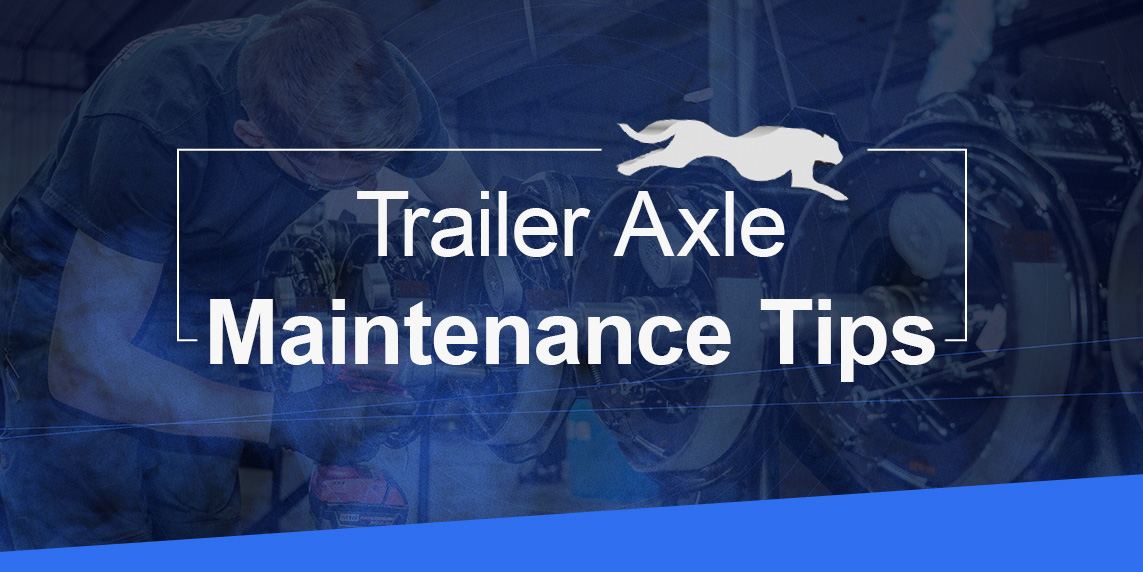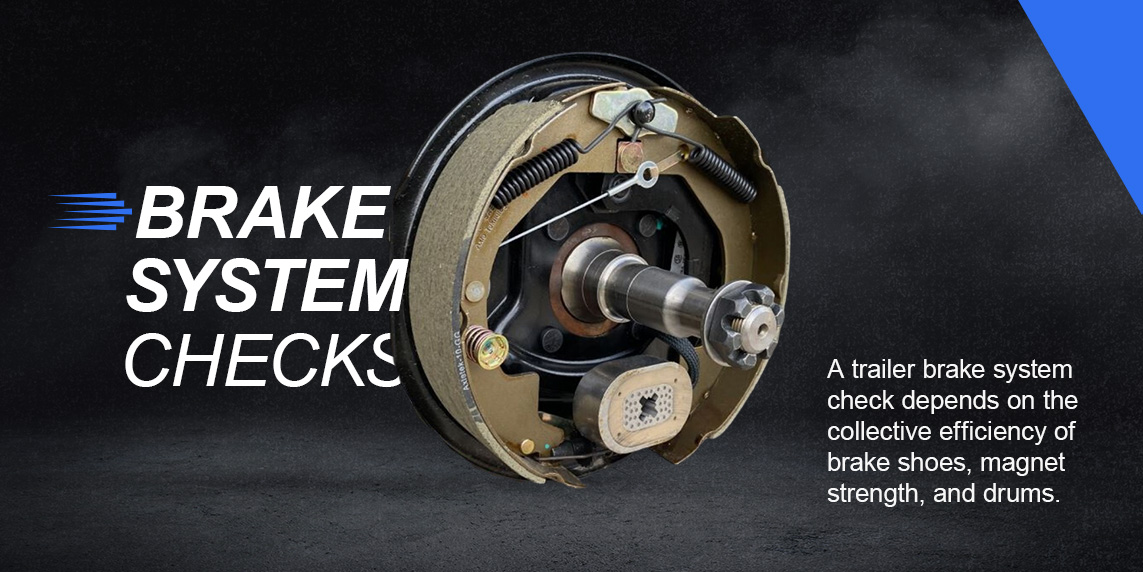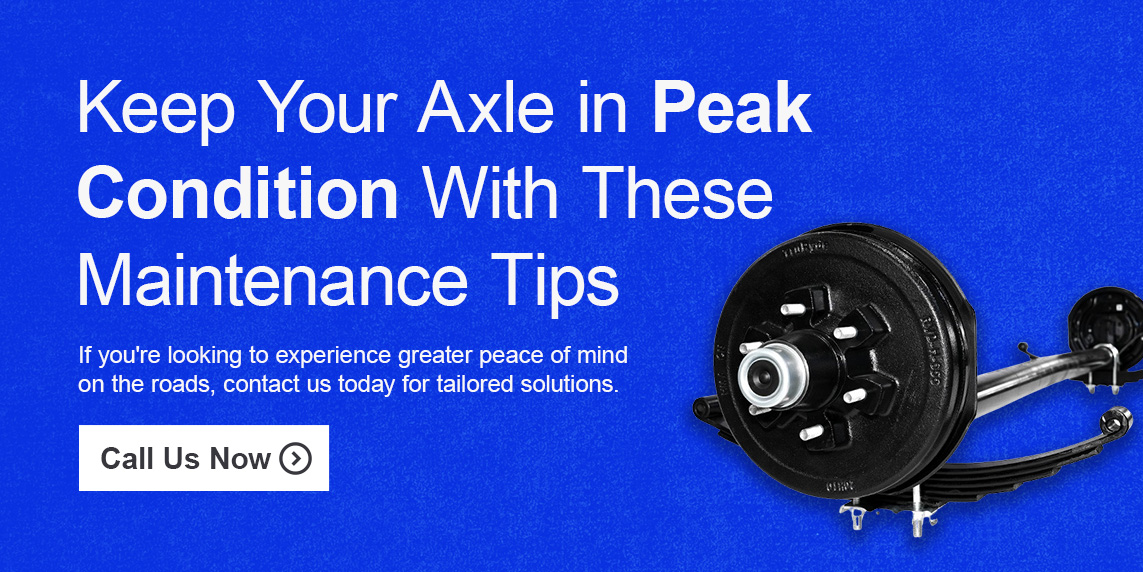An efficient maintenance schedule helps keep your commercial or personal trailer in optimal condition. Learn how to improve road safety and performance while extending your trailer axle’s life span.
The Importance of a Comprehensive Maintenance Schedule
A maintenance schedule will help you remember which components to check and how frequently. If your trailer is for commercial use, you can also track who is accountable for each inspection. Here are some factors to include in your trailer axle maintenance schedule.
1. Visual Inspections
Visual signs of wear and tear are the first indication that it’s time for trailer repairs. Aim to conduct a visual trailer axle inspection once a month or more often if you use your trailer regularly. Key areas to check include:
- Axle condition: Check if the axle has any physical damage or corrosion. You should also tap the bolts to ensure they are secured tightly.
- Welds: Welded elements generally have a protective coating to help them withstand the elements. Look for signs of peeling paint that could lead to rust.
- Attachment points: Look out for loose nuts or bolts and tighten them immediately. Check the bushings, shackles and equalizers for any wear and replace them if necessary.
- Tires: A tire tread less than 2/32nds or excessive weather cracking can indicate it’s time to replace your tires. In addition, we recommend checking the date code on the sidewall of the tire — if the tire is older than seven years, it’s best to replace it.
2. Bearing Maintenance
Towing a trailer across long distances puts significant stress on the bearings. As such, an essential maintenance tip is to perform regular trailer bearing maintenance to ensure all elements remain in working order.
Another one of these trailer axle maintenance tips is to always perform a monthly inspection by jacking up the trailer and spinning the wheels. Listen for any grinding that could indicate a dry or damaged bearing. Next, wiggle the tire from top to bottom and side to side. If there is any play, remove the dust cap and tighten the castle nut until there is no more movement. Be careful not to overtighten the nuts, as this can cause the bearings to get hot and fail.
Lubricating moving trailer parts reduces friction that leads to damage. Once you’ve completed your bearings inspection, use this opportunity to lubricate these components.
Start by using a soft cloth to remove dust and old grease. You can then apply a quality lubricant to the spring bushings, hitch, hinges and other moving components.
3. Brake System Checks
Heavy loads can increase your momentum on downward-sloping roads. A reliable brake system will help you and your drivers feel more in control.
A trailer brake system check depends on the collective efficiency of brake pads, discs and drums. Check the functionality of all these components by attaching the trailer to the tow vehicle and applying the trailer brake actuator on the vehicle. If the trailer remains stationary, you are good to go — moving wheels signify the need for repairs.
4. Suspension System Maintenance
There are two core suspension systems for trailers — torsion and spring. The main difference between the two suspension types is that a spring system has a round tube, whereas the torsion’s tube is square. Both suspension systems offer benefits, yet many drivers favor the torsion system for long-haul trips due to its durability.
You will need to check the following components during your suspension system maintenance:
- Springs: Rust, dents or cracks indicate signs of irreparable damage — you will need to replace the springs in this case.
- Axle: Check the axle for bends — no matter how small. A warped axle can result in an uneven tire wear and alignment issues.
- Tires: Irregular wear and tear are sure signs of poor suspension. Check each tire to establish the best course of action.
- Bushings: Cracks in these rubber components will make them less effective. Check for damage and replace bushings as necessary.
5. Axle Alignment
A correctly aligned axle can improve fuel economy and increase tire life span. An easy way to check for poor alignment is to assess your tires. If the tires are showing more wear on the inside or outside edges, it’s fair to assume the axles are out of alignment.
Choosing a high-quality axle from the start can minimize alignment issues. If you encounter any alignment faults, it’s worth scheduling a check with a professional for peace of mind.
6. Seasonal Axle Maintenance
While some states experience mild conditions year-round, the Midwest winters bring new challenges to the game. Similarly, those who operate in states renowned for hot summers will experience different challenges.
Extreme heat or cold causes more stress to the brakes and wheel bearings. Be sure to check these components more frequently during extreme temperatures.
One final seasonal tip is to wash your trailers frequently during winter. Maintenance officials often use salt and chemicals to minimize the impact of snowy conditions — washing these elements off at the onset prevents structural damage.
7. Storage Tips
Whether you plan to store your trailer overnight or for a few weeks, taking some preventive measures will extend your trailer’s longevity. Here are some quick reminders:
- Short-term storage: At the end of each day, park your trailer in a covered area to minimize impact from the elements. Unloading your trailer is also advisable to maintain good suspension.
- Long-term storage: If you plan to store your trailer for a few weeks or longer, lubricate all axle fixtures beforehand. Lubricating components will help guard them against moisture that could lead to corrosion. In addition, ensure you remove the brake batteries and store them in a safe place.
Keep Your Axle in Peak Condition With These Trailer Axle Maintenance Tips
Once you’ve invested in a new axle, the onus is on you to ensure you achieve one goal — extending the trailer axle life’s span and performance. A functional axle helps safeguard your investment and ensure better road safety.
Blueswift Axles provides quality axles for long-haul journeys. If you’re looking to experience greater peace of mind on the roads, contact us today for tailored solutions. We’ll help you certify your measurements, build your specific axle and ship it to you within 48 hours! Get started with us today — call our team at 515-606-1943.


